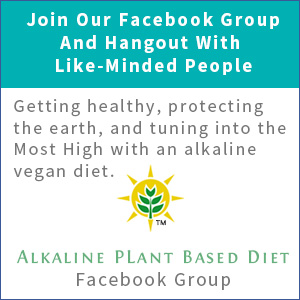Omega-3 Benefits

Omega-3 benefits the body in various ways but has become popular because of it anti-inflammatory and brain protecting properties. Chronic inflammation has become a major health concern because it is a primary cause for the development of disease.
So what is omega-3? Omega-3 are fats or fatty acids, and yes they are vital for supporting homeostasis of the organs and metabolic functions.
Fats are good for you and are necessary for carrying out vital functions in the body, but it is just that too much fat is damaging to the body.
Excessive fat in the body leads to obesity, the buildup of toxins that find their home in fat cells, high cholesterol, and heart conditions.
What is Omega-3?
Omega-3 fatty acids are considered to be essential fatty acids because the body can’t make them and they must be obtained from the foods.
Focus has been put on the consumption omega-3 because the Western and Standard American Diet (SAD) are deficient in omega-3 fatty acids, which are polyunsaturated fatty acids (PUFAs), and concentrated in saturated fats from animals.
There are three types of omega-3. Alpha-linolenic acid (ALA) comes from plants and eicosapentaenoic acid (EPA) and docosahexaenoic acid (DHA) are concentrated in fish and krill oil.
The body uses EPA and DHA so focus has been put on the consumption of fish and krill oil over the consumption of the plant-based ALA.
The body does convert ALA into EPA and DHA, but the body only converts a small amount of ALA into EPA and DHA. This is another reason why fish and krill oil and their EPA and DHA have been promoted over the consumption of plants and their ALA.
Since the Western and SAD diet is deficient in omega-3 focus has been put on saturating the body with fish and krill oil but recent studies[1][2] have shown omega-3 nutritional supplements showed no benefit for cognitive decline.
Unfortunately the consumption of fish has become problematic because of the mercury, radiation, and hormone pollution in the oceans.
Though the conversion rate is not high, that doesn’t mean that consuming omega-3 in the form of ALA does not support healthy living. Plant-based diets do support brain health.[3][4][5]
Omega-3 Benefits: Supports Brain Function
Supports Brain Function
Omega-3 fatty acids play a crucial role in brain function. The brain is made up of sixty percent omega-3 fatty acids, and the majority of that fat is an omega-3 called DHA. Omega-3 fatty acids appear to be important for brain memory and behavioral function.
Studies have shown that pregnant women who do not get enough omega 3 in their diet are at risk of having babies who have vision and nerve problems. Symptoms of omega-3 fatty acid deficiency include dry skin, depression, fatigue, heart problems, mood swings, poor circulation, and poor memory.
Studies show that reduced intake of omega-3 fatty acids is associated with increased risk of age related cognitive decline, dementia, and Alzheimer’s disease.
Omega-3 Benefits: Anti-Inflammatory
Studies have shown that omega-3 fatty acids have anti-inflammatory properties, especially EPA and DHA, which ALA is converted into. The studies have shown that omega-3 can reduce the symptoms of Rheumatoid arthritis an autoimmune disease that causes inflammation in the joints, osteoarthritis, inflammatory bowel disease (IBS), painful menstruation, and lupus.
It is important to have the proper ratio of omega-3 to omega-6 fatty acids. Omega-6 fatty acids are also considered essential fatty acids, because the body can’t make them and they have to be attained through diet. Omega-3 fatty acids are anti-inflammatory while most omega-6 fatty acids are pro-inflammatory. A healthy balance of 3 to 1 omega-6 to omega-3 fatty acids is considered a good balance to reduce inflammation in the body and to produce good health. The typical American diet tends to contain 14 – 25 times more omega-6 fatty acids than omega-3 fatty acids.
Omega-3 Benefits: Anti-Cancer
Studies show that people who eat diets high in omega-3 fatty acids, have a low rate of colorectal cancer. Laboratory show that omega-3 may slow the progression of colon cancer. Women who eat more omega-3 fatty acids may be less likely to develop breast cancer but more research is needed to understand why this is. Omega-3 may also may help prevent the development of prostate cancer.
Other omega-3 health-benefits included omega-3’s ability to reduce the risk of heart disease, but more recent research has refuted this claim. Further research is needed to clear up this point.
Vegetable Sources Of Omega-3 fatty acids
- Hemp Seeds
- Chickpeas
- Walnuts
- Flax Seeds
- Generally nuts, seeds, legumes, and grains contain higher amounts of fat and omega3.
[1] NIH study shows no benefit of omega-3 or other nutritional supplements for cognitive decline
[2] Fish Oil Claims Not Supported by Research
[3] Plant-based Diets
[4] Plant-Based Diet & Mood
[5] Brain Food: New Study Shows Healthy Diet Can Protect Against Memory Loss
[6] Role of Omega-3 fatty acids
[7] Fatty acid nutrition
Tags: nutrition, omega-3, omega-3 benefits, omega-6, what is omega-3







